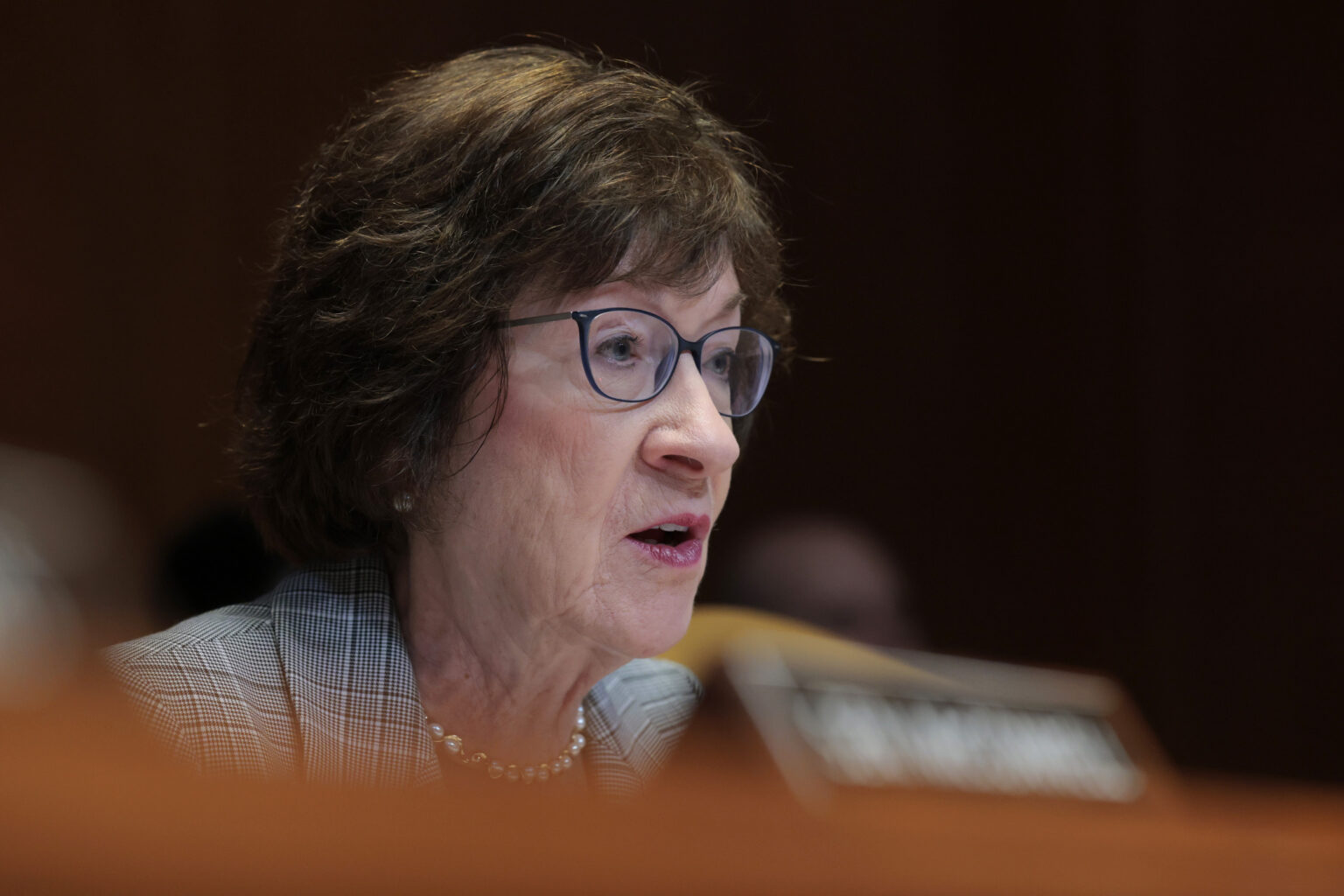Republican Senator Susan Collins received a warning about the popularity of President Donald Trump’s “Big Beautiful Bill” in Maine as she considers whether to support the legislation—and as she gears up for a potential reelection race in the Democratic-leaning state.
Newsweek reached out to Collins’ office for comment via email.
Why It Matters
Collins’ seat has proven elusive for Democrats in recent elections. Although Maine consistently leans Democratic on the presidential level, Collins, with a more moderate voting record than other Republicans, has managed to win over independents and moderate Democrats in recent elections.
But Democrats are hoping to flip the seat next year, particularly if the national environment favors the party. Historically, the party in the White House loses seats in the midterms. Collins is viewed as one of the Democrats’ top targets, as former Vice President Kamala Harris carried the state by about seven points last November.
What to Know
A University of New Hampshire (UNH) poll found that Trump’s “Big Beautiful Bill” is unpopular among Mainers, only 30 percent of whom support its passage. Fifty-eight percent, on the other hand, say they do not want to see it become law. The bill includes several provisions that would allow Trump and Republicans to significantly overhaul tax and social policies.
Among Maine independents—a crucial voting bloc for Collins—72 percent do not want to see it become law, while 21 percent support the bill.
Trump is also increasingly unpopular in the Pine Tree State, according to the poll. Sixty percent of respondents disapproved of him, while 40 percent approved of his job performance. In April, he was viewed positively by 42 percent of Mainers, according to UNH.
The poll surveyed 846 Maine residents from June 19 to June 23, 2025, and had a margin of error of plus or minus 3.4 percentage points.
The bill puts Collins in a “difficult political position,” Ronald Schmidt, professor of political science at the University of Southern Maine, told Newsweek.
“She has built a base of voters that includes many Independents and some conservative Democrats in the basis of an image of policy independence insofar as the practical needs of Mainers go, and lockstep voting with the president, especially as it regards the needs of seniors, could undermine that image,” he said.
On the other hand, there are some conservatives—particularly in the more right-leaning Second Congressional district—who could “hold a grudge” against Collins if she bucked Trump on the bill, he said. They aren’t likely to vote for a Democrat in the midterms, but could stay home.
Collins is a “formidable politician” who has “weathered many storms,” Maine Democratic strategist and Bernstein Shur Group managing director David Farmer told Newsweek. However, she has to “walk a fine line between not alienating Republicans and attracting enough support from non-affiliated voters,” he said.
“My suspicion is that leadership will free her to vote ‘no’ unless they absolutely need her vote,” Farmer said. “That’s something we’ve seen several times before. While some Republicans have been willing to criticize Sen. Collins’ votes and positions, they have always come home to her on Election Day. Independents are the much bigger concern for her re-election prospects.”
Collins thus far has not confirmed how she’ll vote on the bill, but has raised concerns about parts of it, particularly about whether it would cut Medicaid. She said in remarks reported by Portland-based news station WMTW in May that she was “still looking at it because it kept changing up until literally the very minute it passed.”
“I am looking very carefully at the Medicaid provision, and in particular, I’ve been very concerned about the impact on children, on people with disabilities, on seniors who are eligible for both Medicare and Medicaid, and for low-income families. The House bill tries to thread the needle. I’m not certain that they succeeded, but I’m still looking at the specifics,” she said.
Congressional Republicans have set a July 4 deadline for the bill’s passage, but it has faced roadblocks as lawmakers disagree on key provisions.
What People Are Saying
Farmer told Newsweek: “The race is a national target, and there will be a tremendous amount of money spent in the state by both sides. Sen. Collins is one of the toughest politicians in the country and will be difficult to beat. But the anti-Trump climate in Maine is strong, and she will have to fight against that headwind. The race is competitive and will get more so as voters are exposed to the chaos of the Trump administration, the policy impacts on Maine and the unwillingness of Congressional Republicans to address his abuses.”
Collins told reporters in May: “We don’t have to pass the same bill that the House passed, and I don’t think we should.”
What Happens Next
Collins had not made a formal announcement about her reelection but told CNN in May it is her “inclination to run” and that she is “preparing to do so.”
On the Democratic side, two candidates have declared their intent to run. David Costello, who ran in 2024 and held several different positions in Maryland, including acting secretary of the state’s Department of the Environment, is running again. Jordan Wood, who served as chief of staff to former Representative Katie Porter, a California Democrat, is also running.
Governor Janet Mills has also not ruled out running, and some Democrats view her as a stronger candidate than those already in the race with deep ties to the state and having already won statewide.
Read the full article here

